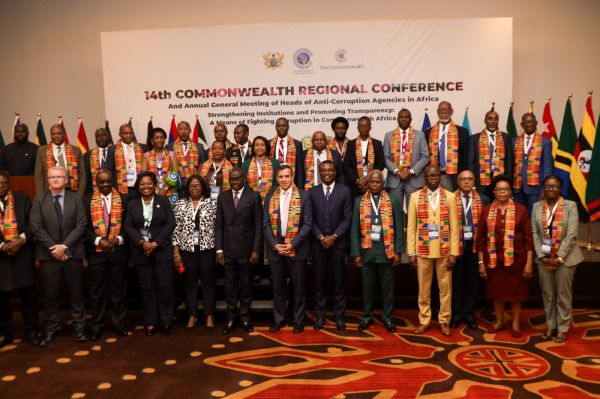As part of efforts by the current administration to tackle corruption and reduce its menace, the Attorney General and Minister of Justice, Mr. Godfred Yeboah Dame has revealed that about Eight(8) legislations have been passed.
These legislations he added, are aimed at strengthening existing measures in fighting the canker that has bedevilled various sectors in the country.
In a speech read on behalf of President Nana Addo Dankwa Akufo-Addo at the 14th Regional Conference of Heads of Anti-Corruption Agencies in Accra, Ghana, he mentioned; the Revenue Administration (Amendment) Act, 2020 (Act 1029), Fiscal Responsibility Act, 2018 (Act 982),
State Interests and Governance Authority Act, 2019 (Act 990), Anti-Money Laundering Act, 2020 (Act 1044), Corporate Restructuring and Insolvency Act, 2020 (Act 1015), Companies Act, 2019 (Act 992),
Narcotics Control Commission Act, 2020 (Act 1019) and Real Estate Agency Act, 2020 (Act 1047) as the legislations introduced to curb corruption.
“Other pieces of anti-corruption legislation passed in recent times, are part of the raft of measures instituted to create a strong system for deterrence and elimination of corruption”, he disclosed.
According to him, “Corruption sometimes involves the existence of situations taken advantage of by persons entrusted with public power to inflict severe financial hardships on the State. To curb the inimical tendency on the part of public officers to enter into contracts with high rates of interest especially compound interest which results in huge judgment debt and financial loss to the State, the Office of Attorney-General in July 2023 successfully sponsored an amendment to the Contracts Act, 1960 (Act 25) to prohibit the payment of compound interest by the State in transactions entered into on her behalf by public officers. The law, the Contracts (Amendment) Act, 2023 (Act 1114), prohibits public officers from entering into a contract on behalf of the State in which the rate of interest is stipulated as compound interest”.
He revealed that Ghana has in recent times, embarked on a deliberate policy of digitalisation of the Ghanaian environment as a vital tool for enhancing transparency and efficiency in the public sector.
“Policies like a robust National Identification System, Digital Property Address System, Paperless Port Systems, E-Justice Systems, Pensions and Insurance data and a digitized Land Title Registry have in their focus the attainment of accountability and efficiency in the public space. A digitised environment ultimately helps to eliminate and prevent corruption in various institutions and agencies.
Important institutions of state like the Passport Office, Ports and Harbours, Office of the Registrar of Companies, National Health Insurance Service and the Driver Vehicle and Licensing Authority, which hitherto were fertile grounds for corrupt activity, have been remarkably transformed.
The introduction of the Ghana.Gov platform, making it possible for services to be accessed and payment made online by card without the conduit of middlemen, has significantly reduced the risk of public sector corruption through embezzlement”, he disclosed.





